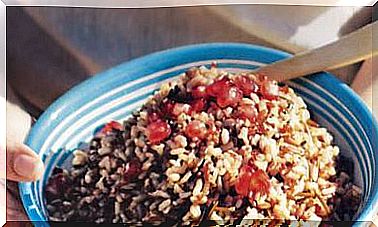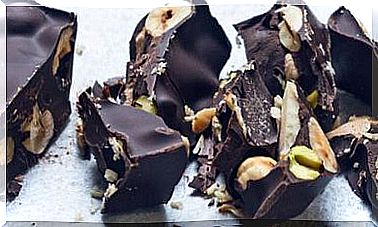10 Recommendations To Digest Well, Avoid Gas And Heaviness
There are people who always have discomfort after meals. They may suffer from slow digestion. Here are tips to improve this annoying problem

Slow digestions are behind a large number of medical consultations. Most of the time it is a symptom, not a disease. It happens that food is retained for longer than necessary in the digestive system, which causes discomfort, abdominal bloating, gas, increased girth of the belly, belching, regurgitation … This happens between half an hour and two hours after eating.
In general, indigestions of this type usually take place beyond the stomach but before the final part of the digestive system. They are mainly involved in the liver or bile, the pancreas and intestinal juices.
Bile, of which we can secrete up to two liters a day, must be secreted into the small intestine. Having a biliary problem does not necessarily mean having a liver problem. A first step to improve digestion is to follow the following dietary tips.
How to improve digestion
- Eat slowly and eat early. These are two important recommendations. Chewing food well is the first step in digestion. And, after dinner, it is essential to have a good time before going to sleep so as not to “indigestion” in bed.
- Spice up the food. Saliva is the first digestive juice essential for proper digestion: it breaks down the longest chains of carbohydrates into simpler units, such as glucose or sucrose.
- Avoid moodiness at the table. Stress alters gastric juices and worsens digestion. Calm!
- Watch your reactions. What foods tend to cause heavy digestions? They are often high in fat or protein, but in some people also legumes, lettuce, citrus fruits and other foods.
- Restrict certain foods. Avoid pastry in general, especially industrial and chocolates. Also coffee, preserves and fried and battered. People who consume animal protein or alcohol should reduce the amounts.
- Avoid preservatives. The consumption of prepared or long-preserved foods makes us also eat their preservatives. The best thing is to avoid them: they are antibiotics and they alter our flora.
- Eat raw. With its skin or its shell, if possible. Raw foods retain some of the microflora that can help repopulate the intestine.
- Recover your flora. Gut microbes carry out about 70% of the digestion of food, so having them in adequate number and quality is essential. Once a month it is recommended to supplement with probiotics (lactobacilli, bifidobacteria, saccharomyces …). It will help in that part of the digestion that does not depend so much on us as on our tenants.
- Use spices. Cinnamon calms and is a digestive regulator with an exceptional flavor. It is delicious in herbal tea with ginger, lemon and a little honey. Ginger stimulates the secretion of digestive juices and thus prevents flatulence and abdominal cramps. It is preferable to use it raw or grated than dry. Turmeric acts on the liver and can be added to almost any dish, along with a little black pepper.
- Use medicinal plants. Green anise (Pimpinella anisum ) is perhaps the best herbal remedy for intestinal gas. With its seeds you can prepare a delicious tisane, although there are also extracts. Other interesting plants are pennyroyal ( Mentha pulegium ), boldo, and artichoke leaves.









